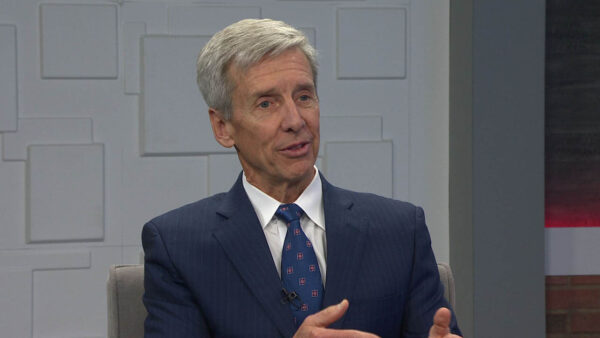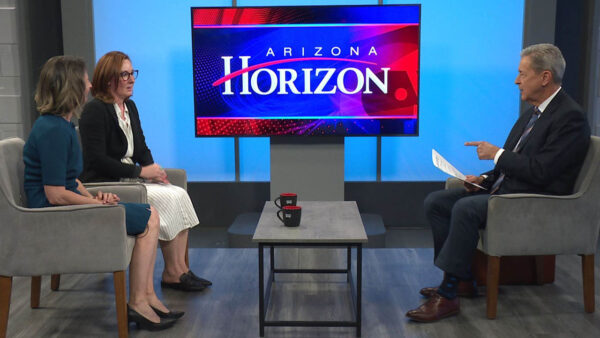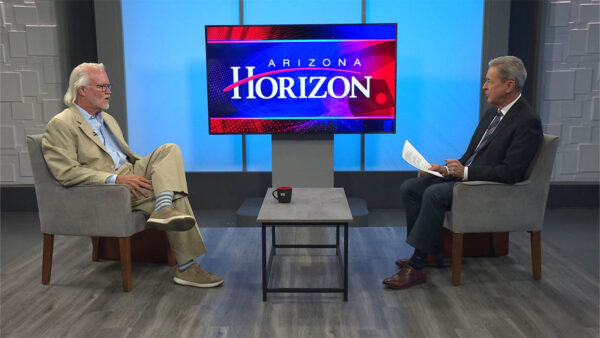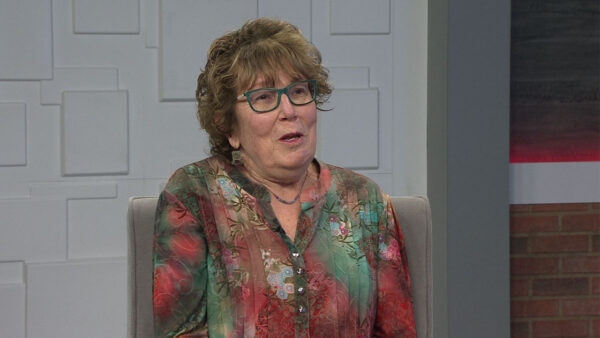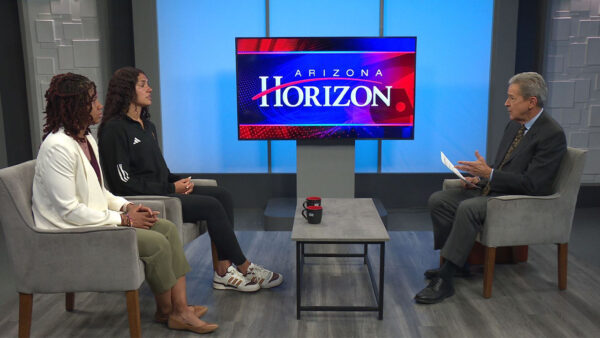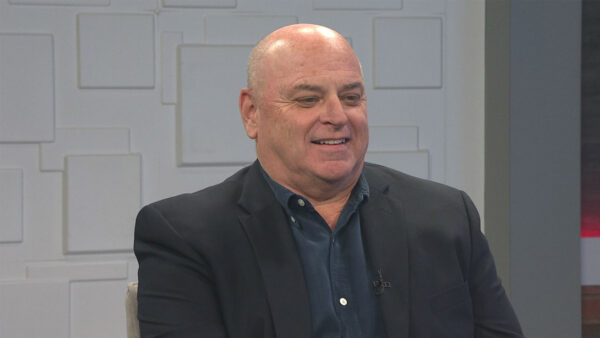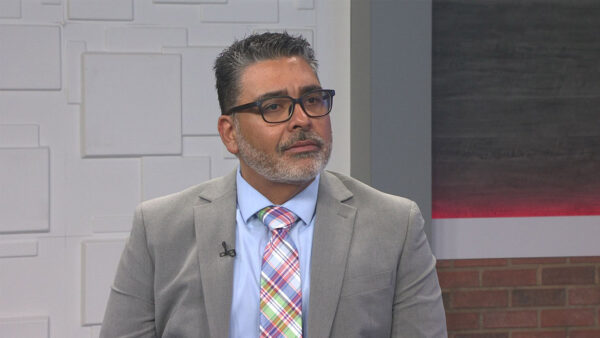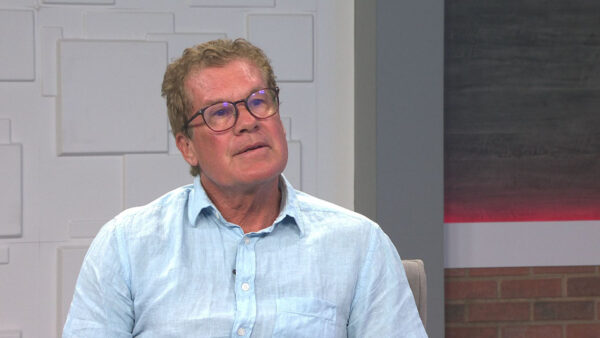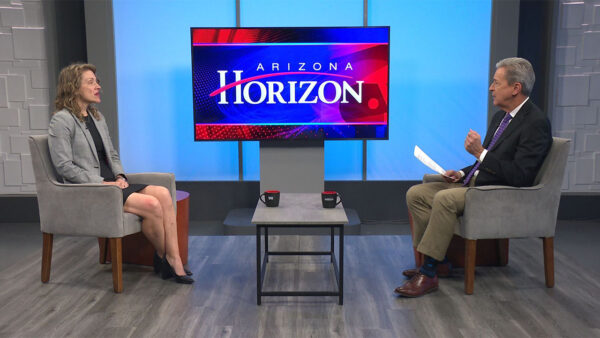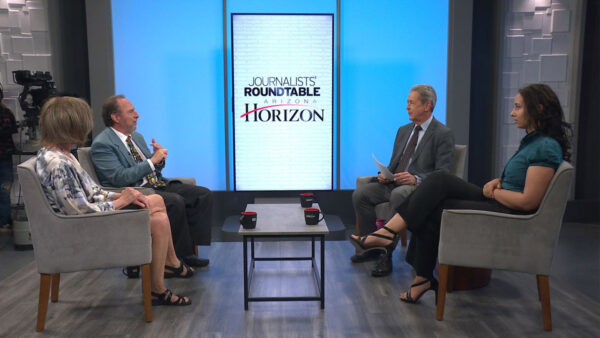Being a military veteran carries benefits and challenges when those veterans seek an education. Joanna Sweatt, Military Advocate at Arizona State University’s Pat Tillman Veterans Center, will discuss education for veterans.
Ted Simons: Opportunities and challenges facing Veterans will be the focus of a special program later tonight here on eight Arizona PBS. The show is titled "arizona Veterans coming home, ask an expert," and it will offer viewers a chance to call and have their questions and concerns answered by experts on Veteran issues. Veteran's issues, I should say, education will be among those issues addressed tonight, and joining us now is Joanna Sweatt, the military advocate at asu's pat Tillman's Veterans center. Thanks for joining us.
Joanna Sweatt: Thanks for having me.
Ted Simons: What are the challenges? The challenges facing returning Veterans when it comes to education.
Joanna Sweatt: Well there's a few of them. First and foremost it's the transition out of the service because generally, they are using education as a transitional step. Our current G.I. bill, the post--11G.I. bill is very robust and that provides not only the financial piece to cover tuition, but also provides a housing and living stipend, so many of those that are leaving the service, either unexpectedly or after one too many deployments, it seems like the next easy step, is to pursue education.
Ted Simons: And you mentioned the G.I. bill, still very much in play.
Joanna Sweatt: Yes. We don't know of it going anywhere at this point. It's, actually, being improved, as well because there's been Federal legislation that has passed that is telling institutions that are public schools, to charge instate tuition, as the max value of education for Veterans returning to their universities.
Ted Simons: With the G.I. bill there, are there concerns over school loans? Are there -- I know for profit universities had trouble there targeting military folks, what are you seeing?
Joanna Sweatt: I am not really familiar on that side because I work at asu, which is a public institution, so most of our students are covered at 100% on the GI bill. They do qualify for things such as the pell grant, which gives them extra money to help offset the other incidental cost, but I don't see a lot of our students par taking on the student loan side.
Ted Simons: Can you compare the education one gets in the military with the education that they will get out of asu?
Joanna Sweatt: It's grossly different because in the military, you are at a point in place, you have an instructor that you have to listen to. There is no nodding off. There is no derelict behavior associated with military style teaching. Now that they are here in a traditional University setting, they are dealing with all the different distractions that happens in a classroom, and in a military classroom, everybody is sitting straight, looking forward, and paying attention to the period of instruction in the civilian classroom, and you have got young students on Twitter, on their Facebook, you know, and typing away, on their computers, and or cell phones, which is a huge distraction to Veterans. Believe it or not, that's -- they come to my office to vent, and that's the biggest problem they have is not being able to control their learning environment because most professors are just there, and they are giving their spiel, and that's the end of class, and you go on, and you are expected to reiterate yourself and learn, and they are having trouble with that because they want that connection with the professor, and they want that one-on-one, and you don't really get that in the University setting.
Ted Simons: And I would imagine, as well, in the military, failure is not an option.
Joanna Sweatt: It's not an option.
Ted Simons: And with that in mind, is it hard for some of these folks to adjust to the, you know, to --
Joanna Sweatt: Absolutely.
Ted Simons: To the cs and ds, and the occasional bad grade that goes down the pipe.
Joanna Sweatt: And most of it comes to time management. So, when you are in the service, you are kind of -- you are told what to do and when to be in your -- your schedule is set. There is no deviation. Now that they are in school, they get to pick their schedule, but there is not a real -- there is not anybody over them managing where they are going to be and what they should be doing, so managing all this free time that they think that they have at the end of the day, when assignments are not being done, and you are procrastinating that assignment to the last day, that it's due is when you realize wow, I should have probably managed the time better, so that's something that we discuss with them.
Ted Simons: And you mentioned this is maybe the most common thing when they come to you and talk about concerns.
Joanna Sweatt: So, I tell them to treat the University or their college life as a job. Most of them, that's what they are pursuing full-time. So, instead of it being a transient student, which most Veterans start off being, they go to their class and they leave campus, and maybe they will come back for another class later or they will go home to their families, and which could be a distraction, as well, so I tell them, you know, set your schedule, make it like a 9:00 to 5:00. If you are on campus, you stay there, for a greater part of the day. And you complete the assignments there prior to going home. That way you don't have those distractions after you leave school.
Ted Simons: And other aspects of fitting in, we were talking about folks that have many of them have seen and experienced things that their college classmates have not and will not experience. The ability or lack thereof to fit in, how big of a problem is that?
Joanna Sweatt: I think initially, they are apprehensive about it, and that's one of the concerns. I know when I returned back to school, it was very daunting to walk into the classroom because you are looking in there, and you are like, wow, nobody really looks like me. I am going to be the old lady in the room. Once you get passed that and I think the students start to realize over time if they are open to it, that although they have had different experiences, they are the same, in that they have a goal. With their education, and they may even have some of the same career goals. So, you just have to get passed that initial difference, that seems to be in front of you, and then realize where the commonalities are. There are quite a few.
Ted Simons: And when you speak to Veterans, is there a difference that you find between older Veterans returning to school and younger Veterans?
Joanna Sweatt: Yes. So, I feel like maybe the 30 plus side may, actually, transition probably a little smoother than those that are -- that had an initial tour in the service and got out at 24/25. And I think that the difference is because when you are -- by the time you hit 30, most of them have families and children and so they have evolved to a certain point, so they are at college for a goal, and they are pursuing that and really focused. But, when you have the 25-year-old, marine or soldier that's coming out and they are kind of close to that peer, but there is the difference with experiences and not getting each other, so I think that when you look more like the population that's at the University, but you don't feel the same, it could almost be worse. So, we try to combat that, and we discuss groups that the students and get involved in, just to become more a part of the student body population.
Ted Simons: All right. Well, good stuff, and the ask an expert show regarding veterans issues is on later on this evening, but we wanted to get a preview here with education. Good to have you here.
Joanna Sweatt: Thank you. I appreciate it.
Joanna Sweatt:Military Advocate, Pat Tillman Veterans Center at Arizona State University;





